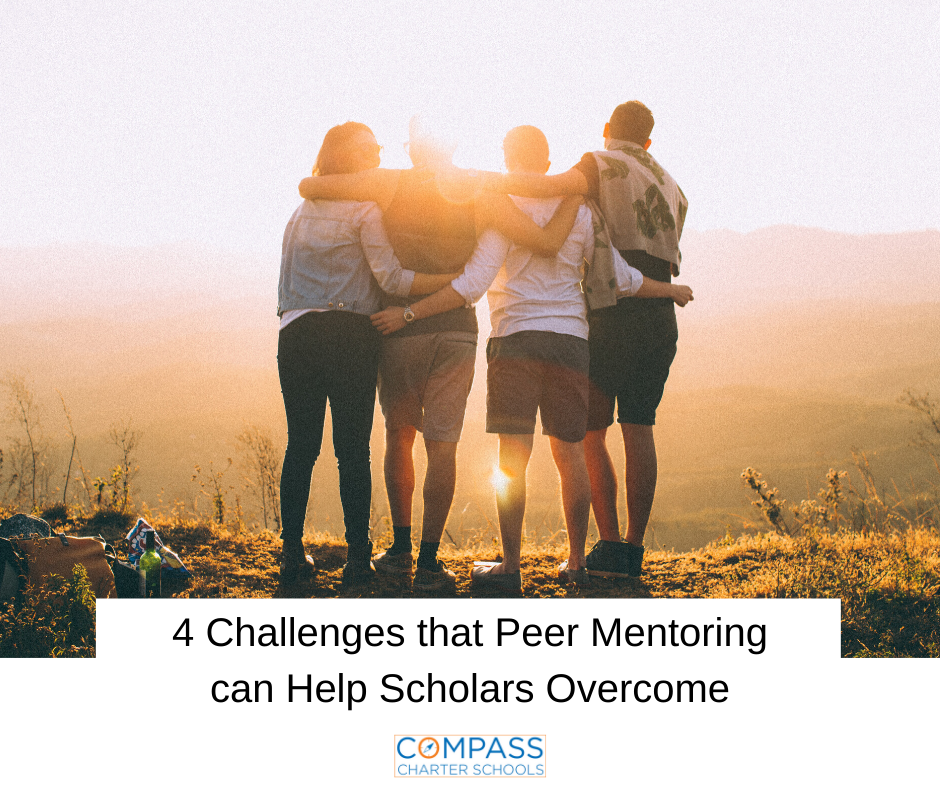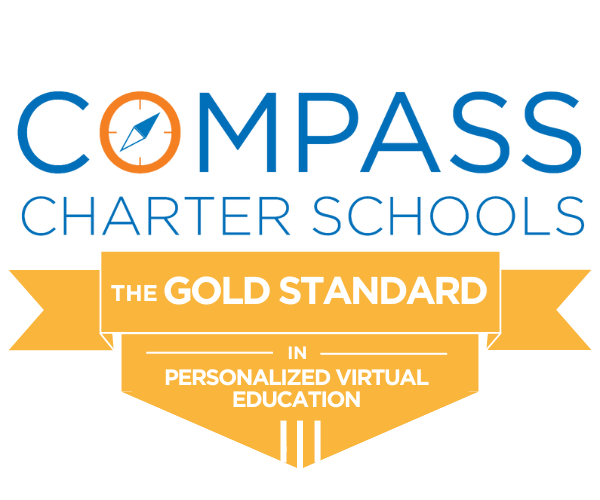
The new peer mentoring program at Compass Charter Schools (CCS) is picking up steam! A number of CCS scholars received training and are now volunteering as peer mentors to support their fellow scholars.
Teenagers and pre-teens often face many challenges as they undergo several physical, mental and emotional changes during those years. These changes can create a number of challenges that scholars may struggle to overcome. Enrolling in a new school or starting a new grade level can make scholars feel overwhelmed and anxious. They most likely have a lot of school work, busy daily schedules, and may not have any new friends yet. Participating in a peer mentoring program can help scholars overcome the challenges that they face.
Let’s review four common challenges that teenagers and pre-teens often face and how peer mentoring can help them:
Low Self-Esteem
Peer mentoring can help scholars improve their self-esteem. It’s common for teens and pre-teens to struggle with their confidence and self-esteem. They are often facing several physical and emotional changes along with other transitions like attending a new school or moving up to a more challenging grade level. All of these changes and transitions can cause them to feel unsure of themselves, which can result in low self-esteem.
Peer mentoring can help scholars build their confidence and improve their self-esteem by giving them a chance to casually and safely socialize with their peers and learn from them. A mentoring program is designed to help children learn the ropes while they adjust to the changes in their lives. Peer mentors are trained to give helpful tips and advice to others so that all scholars can feel comfortable and confident in themselves. Participating in a peer mentor program can give scholars the gentle nudge they may need to come out of their shell, engage with their classmates, ask questions, receive advice, and make new friends. Taking these small steps through a peer mentoring program can help children improve their self-esteem so that they can confidently navigate their teenage years.
Lack of Structure in Daily Routines
Some scholars may have difficulty creating a daily routine to balance their academics, extracurricular activities, and playtime. Participating in a peer mentor program can help scholars overcome this challenge because they can learn about the schedules that their peers and classmates use. Scholars can learn about the importance of having a daily routine and how to successfully create a balanced schedule. Peer mentors can share their tips and advice about creating schedules and they can even help new scholars design their own routines.
It’s no secret that participating in a virtual school, like CCS, can make sticking to a daily routine challenging for some children. They are often learning from home, which comes with a lot of flexibility and distractions like television, video games, and toys. However, choosing an online school can help scholars develop important life skills such as discipline and time management. Learning to create and stick to a daily routine can help scholars develop these important life skills so that they can succeed in school and the future!
Feeling Isolated and Disconnected
Enrolling in a new school or moving up to the next grade level can be an intimidating experience for some children. This change at school can cause them to feel isolated and disconnected from their school community. They may feel alone because they haven’t made any new friends and they don’t see any familiar faces in their classes. Peer mentoring can help scholars overcome these feelings of isolation by giving them a stronger sense of belonging to their school community. Peer mentors are available to help new scholars adjust to their new school environment. They can serve as a friendly, familiar face that new scholars can count on for advice and support. Participating in a peer mentor program can help scholars make new friends and comfortably adjust to their school or grade level. Making new friends and feeling confident in their classes can help scholars feel a stronger sense of belonging to their school community, which will likely decrease any feelings of isolation and disconnection.
Undiscovered Hobbies & Interests
Some scholars may not have discovered any hobbies or personal interests yet, which can lead to feeling uninspired and bored. Participating in a peer mentoring program can help scholars overcome these feelings and possibly discover a new hobby that interests them. Peer mentoring sessions are casual meetings where scholars can talk about almost anything, including their hobbies and interests. These open discussions can help children learn from each other and discover new activities that they may want to try. Scholars are often more likely to feel inspired to try a new activity or hobby that their peers are doing. It can provide a great opportunity for team bonding and create meaningful friendships!
____________________________________________________________________________
Compass Charter Schools (CCS) is a WASC-accredited virtual charter school that serves families throughout California. Interested in learning more about CCS’ flexible academic programs? Visit our website, or contact our enrollment team at enrollment@compasscharters.org or (877) 506-8631.
